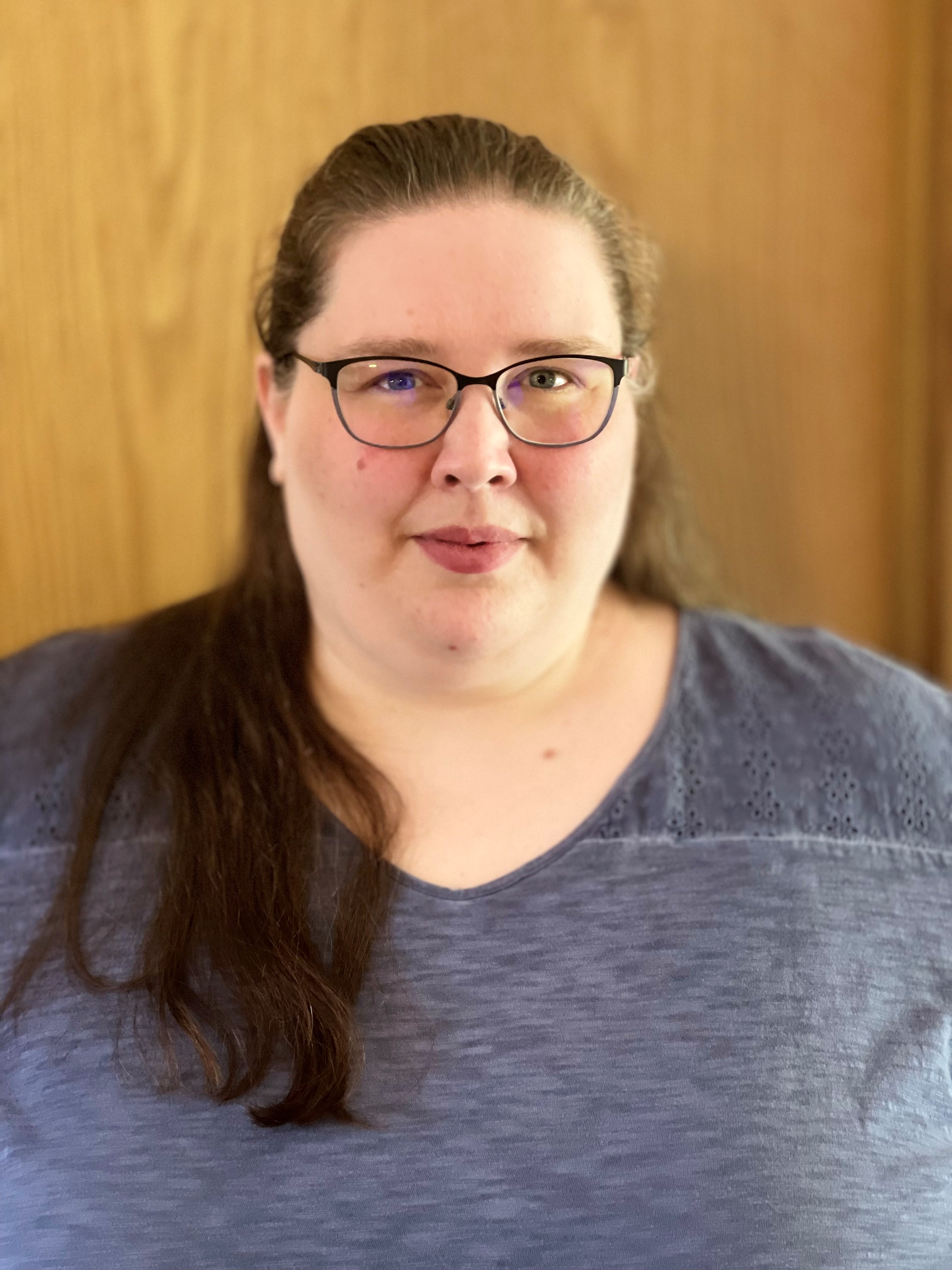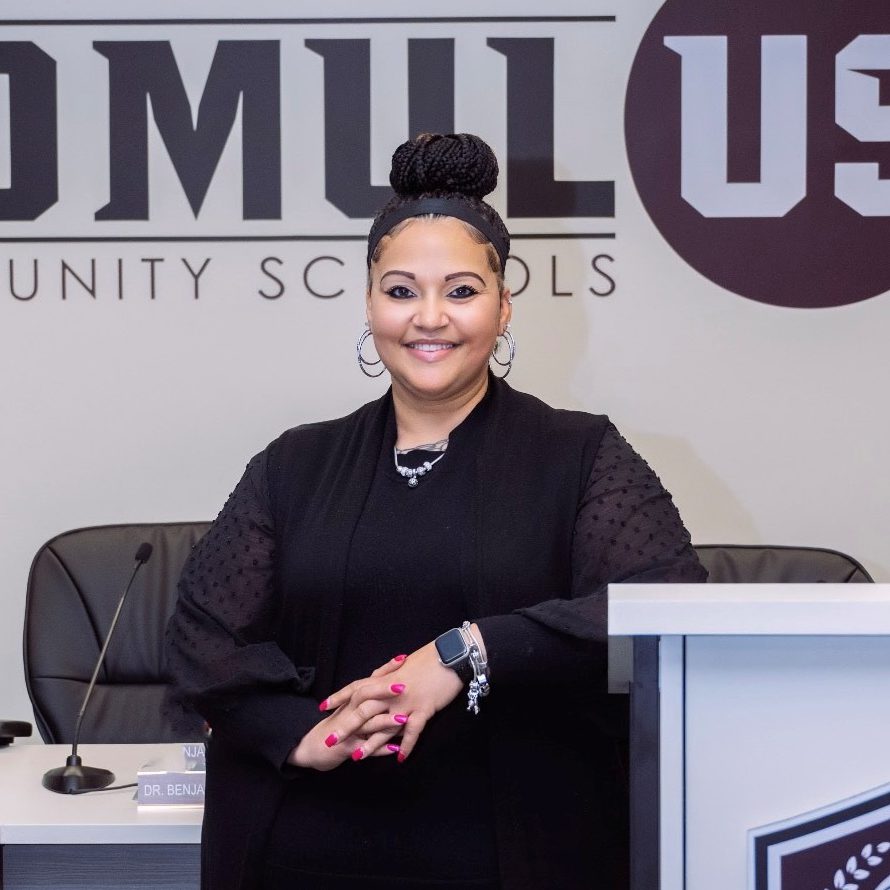Member Spotlight: Jennifer Shelito
Jennifer Shelito is secretary of the Information Systems department at Tuscola Intermediate School District where she helps to manage a 17-district phone system, internet service for 26 districts, and training on all of that—plus data systems—for educators in the region. She helps people who’ve forgotten login credentials, voicemail pins, and how to get test scores to populate in the gradebook. “When I first moved to my current position, I saw three computer monitors in front of my desk, and I thought, What am I going to do with three monitors? Now I’m like, ‘I need another monitor. I don’t have enough monitors.’”

You’re president of your local unit representing clerical, office, paraeducator and transportation employees. How did you get involved with the union? “I always call myself a union brat. I grew up in the union. My mom worked at the ISD where I work. She was a bus driver and a local leader and then she moved to be a UniServ director. I can remember when I was little going to informational pickets and seeing her go to MEA RA’s (representative assemblies), NEA RA’s, trainings. As I got older, she would go across the country doing trainings, and she was so well-respected and knowledgeable. I wanted to be like her. I served two terms as vice president, then became president in 2019. I’m still the MEA-NEA Region 11 delegate, and I love going to RA’s. I’m coordinating council delegate, and I’m treasurer of the coordinating council. I don’t know—I’ve always wanted to give a voice to the ones who don’t have a voice, and it seems to me ESP don’t have a voice all the time.”
You recently completed an MEA virtual book study, discussing the book White Fragility: Why It’s So Hard for White People to Talk About Racism, by Dr. Robin DiAngelo. Why did you want to participate? “Growing up here in the Thumb, there wasn’t any diversity. Then I went to private Christian school when I went away to college, and there still was not a lot of diversity. I realized that I have some biases I needed to work on, even though my mom worked very hard at making sure my brother and I grew up respecting everybody. I wanted to work on becoming a better person.”
After going through the book study as a participant, you agreed to co-facilitate another session, alongside a teacher. What led you to do that? “I am not an outgoing person. Put me in front of kids, and I’m usually OK, but put me in front of my own peers or my own age group, and it’s terrifying. But I’m realizing that growth only happens when we step out of our comfort zones. When I heard (MEA) was looking for someone to do it, I emailed and said, ‘I’d be willing.’”
How did it go? “By the end, I was still a little terrified facilitating, but I would do it again because I learned so much more going through it the second time than I thought I would. It was all women in our group, from all over the state, and we had amazing conversations. It was very enlightening, and it made me realize I’m not alone, that there are other people going on the same walk and struggling with the same things, and that it’s OK, as long as I keep working on it and looking for answers.”
What did you learn from the book? “Before I read this book, when I heard the term white supremacy, I thought of the KKK or neo-Nazis and the horrible things those individuals or groups did. But Dr. DiAngelo explains that it’s a descriptive term not for individual actions but for a political, economic and social system of domination. It’s the system that gives me more privilege as a white woman than my friends who are people of color. White privilege is white supremacy.”
What’s your biggest takeaway? “I think the biggest idea I took away is that racism and especially white fragility is not for a person of color to combat. Racism is not their issue. It is our issue. For white people, it is our issue to call out other white people to say, ‘That’s not cool. You shouldn’t be doing that, or that situation is not right,’ because if we stay silent, then the cycle just continues.”



